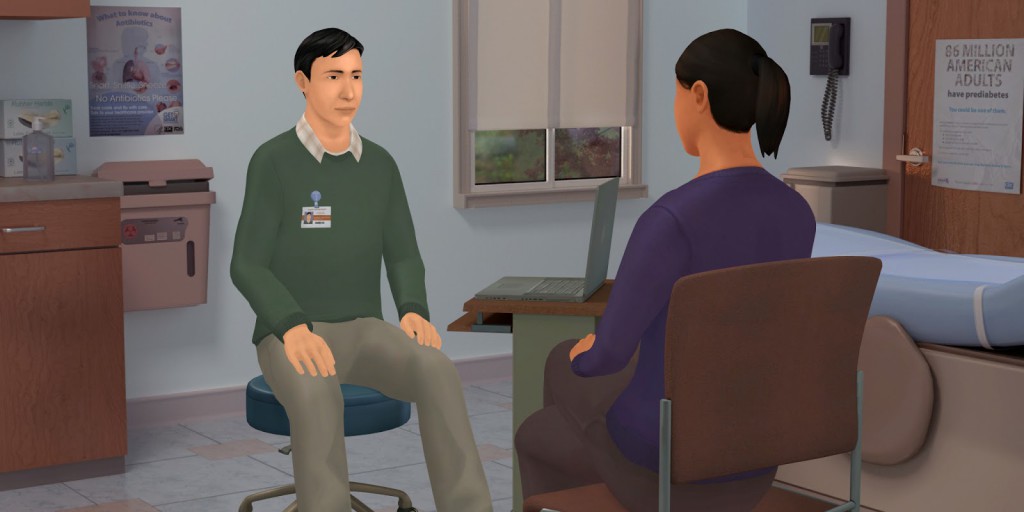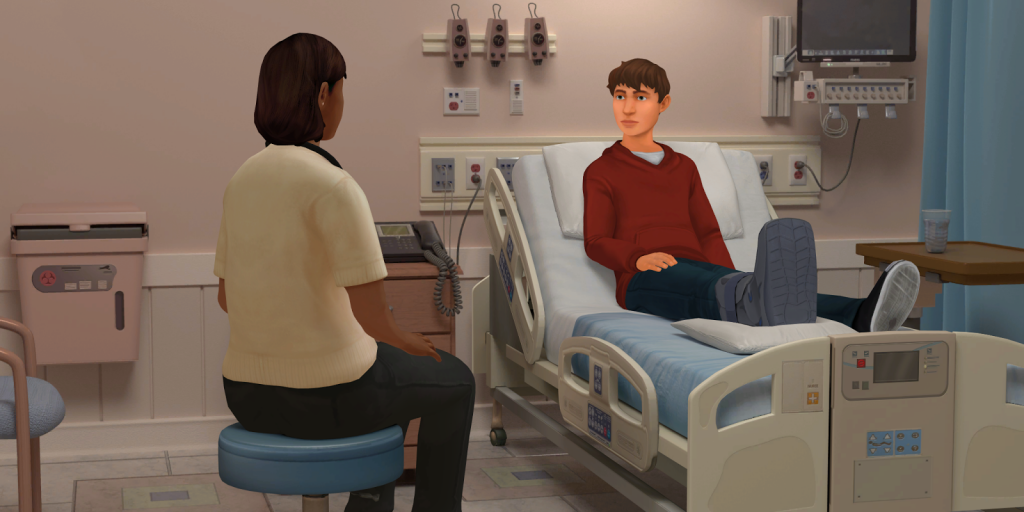 With the shift to value and the elevation of the patient experience as one arm of the Triple Aim, we’re seeing the emergence of a burgeoning marketplace for tools and services that address this critical piece of the healthcare puzzle. Health systems and providers are scrambling to meet new qualitative objectives and foster patient engagement, and need all the help they can get on these fronts. Drug and device manufacturers are eagerly looking for pill-plus solutions that can help differentiate their products by improving adherence and patient outcomes. Ideas that might have languished in a lab a few years back are finding their footing (and funding!).
With the shift to value and the elevation of the patient experience as one arm of the Triple Aim, we’re seeing the emergence of a burgeoning marketplace for tools and services that address this critical piece of the healthcare puzzle. Health systems and providers are scrambling to meet new qualitative objectives and foster patient engagement, and need all the help they can get on these fronts. Drug and device manufacturers are eagerly looking for pill-plus solutions that can help differentiate their products by improving adherence and patient outcomes. Ideas that might have languished in a lab a few years back are finding their footing (and funding!).
Kognito is a great example of this. This New York outfit, which has the energy of a startup but started up in 2003, develops simulations designed to coach providers, patients and caregivers on behavioral intervention strategies. Their platform uses “emotionally responsive virtual humans” - simulated doctors and patients, for example - to engage users in a typical conversation, highlighting key moments and prodding them to delve deeper into a patient’s seemingly offhanded remark, or to validate the patient’s experience by summarizing what they’ve told them. The user is then prompted to choose from a menu of possible responses and given feedback on their choices. It’s a “Choose Your Own Adventure” roleplay approach to improving patient dialogue around specific topics, some of which have included substance use, overuse of antibiotics, PTSD among veterans, and childhood obesity. “There might be shame, there might be family issues,” said CEO Ron Goldman, “These are tough conversations. A lot of people don’t have them, or they don’t know where they’re going to go. We help build skills and confidence to motivate the patient to get the help they need.”
Kognito partnered with the American Academy of Pediatrics to develop Change Talk, a mobile and online app that aims to help pediatricians and other healthcare professionals work through family resistance to behavior change around pediatric obesity. “
 We used motivational interviewing and robust storytelling to address risks around childhood obesity,” said Lois Drapin, SVP, New Health Markets at Kognito. “These conversations are based on a methodology using principles of neuroscience, social cognition and learning theories designed to address barriers and provide opportunities to encourage and motivate,” said Drapin, who notes that Kognito’s are the only simulations listed in the National Registry of Evidence-Based Programs and Practices kept by the Substance Abuse and Mental Health Services Administration, a part of the U.S. Department of Health and Human Services.
We used motivational interviewing and robust storytelling to address risks around childhood obesity,” said Lois Drapin, SVP, New Health Markets at Kognito. “These conversations are based on a methodology using principles of neuroscience, social cognition and learning theories designed to address barriers and provide opportunities to encourage and motivate,” said Drapin, who notes that Kognito’s are the only simulations listed in the National Registry of Evidence-Based Programs and Practices kept by the Substance Abuse and Mental Health Services Administration, a part of the U.S. Department of Health and Human Services.
Change Talk is engaging – and even kind of fun, with engrossing dialogue and game elements that make the experience feel more play than work. As you try different approaches to motivate an overweight mother and child to work on his obesity, a “virtual coach” dispenses personalized feedback, and a user dashboard tells you how well (or poorly) you’re doing at breaking through their resistance to change. An “Undo” button lets you try an alternate approach when a conversational stratagem backfires.
The company’s client base in healthcare has so far consisted mainly of government agencies, research institutions and non-profits – they recently partnered with the Robert Wood Johnson Foundation, for example, on a simulation aimed at curbing overprescribing of antibiotics – but they are beginning to explore partnerships with pharmas and other commercial healthcare entities.
With mounting expectations for beyond the pill tools from pharmas – three-in-five physicians say pharmas must provide more services alongside treatments to stay relevant in the emerging healthcare system – you can see the value of offerings like Kognito’s. With the patient experience and outcomes now paramount in the minds of providers and payers, the need for solutions addressing the tricky business of behavior change is clear. We expect that we’ll be seeing a lot more of these sorts of offerings on the market, and pharmas looking for bolt-on tools and services that add value to their products will take a keen interest in them.
Contribution made by: Monique Levy, VP Research, and Matthew Arnold, Principal Analyst, DRG
(originally published on March 3, 2016)
